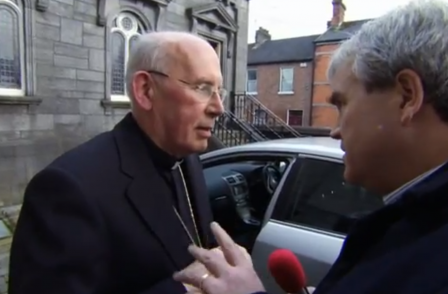
One of the big surprises at last week’s Bafta Awards was that Mark Williams-Thomas did not win the current affairs category for his ITV Exposure documentary on Jimmy Savile.
With two Royal Television Society awards and a joint London Press Club award under its belt – not to mention a subsequent police investigation and major BBC internal inquiry – the ITV programme was a firm favourite to claim the prize.
Williams-Thomas had originally been working on Newsnight’s investigation into Savile, which was controversially shelved.
It is perhaps ironic then that his documentary lost out at the Baftas to another BBC investigation into child sex abuse, to which the BBC gave its full support. It first went onto the air in May 2012 – five months after Newsnight spiked its Savile programme, and five months before Williams-Thomas’s ITV documentary.
The current affairs Bafta award this year went to the BBC team behind This World documentary The Shame of the Catholic Church. It further exposed child abuse in the Catholic Church in Ireland and also scrutinised the relationship between the church and state.
Despite having “faith in the integrity” of the story, presenter Darragh MacIntyre seems as surprised by the win as anyone.
“We were up against one of the most important stories of the last decade,” he tells Press Gazette. “So we didn’t expect to win.”
On the BBC’s handling of the programme, he said: “You can imagine, great care was taken.
“When you look at BBC News and Current Affairs, we’ve been through a pretty hard year.
“But when you look at the way the BBC handled this… yes, they scrutinised our process, but they were supportive. BBC News and Current Affairs supported us the whole way.”
In particular, he praises the corporation for allowing the team to approach the leader of the country’s Catholic Church on his doorstep.
“[The documentary] didn’t have a huge impact in the British media,” he says. “But in Ireland it dominated the news agenda for two weeks in a row – because we had door-stepped the head of the Catholic Church.
“For the BBC to do that, it’s a bold move. And it’s not done without great consideration.”
MacIntyre says this documentary was part of a far wider exposure of the Catholic Church in Ireland, and does not call it ‘his’ story, but the basis for the story did arise out of his own personal experiences.
“At one point I stepped out of journalism and went to live in the north west of Ireland to run a pub,” MacIntyre says.
“When I was living in this community a story broke locally about clerical abuse and I had followed that story for years.
“And then when I went back into journalism I kept my eye on it. It was a community that I lived in so I knew the people.”
Despite his personal ties in the area where their story began, MacIntyre says one of the biggest challenges of the documentary was getting people to talk and go on the record.
For instance, the team set up three separate meetings with the man who turned out to be the programme’s key witness in Stansted airport before he was prepared to be interviewed extensively.
Overall, the team spent three months solidly working on the story and talking to people in the area.
“I think the key thing is trust,” MacIntyre says.
“There was a lot of Alison Millar, the director of the programme, with tea and biscuits.
“And it was talking to people, and talking to people, and talking to people – and convincing them, one, that we believed them, and, two, convincing them that we would look after their story.
“[And] that we would look after them, that their story would be told properly, keeping them informed at all stages.
“For example… all those who took part in the film, they saw it before it was broadcast. They were sat down so they had a sense of what was going to happen. So there were no surprises for them.”
Despite the similarities in nature between this documentary and Williams-Thomas’s, MacIntyre is reluctant to draw comparisons. But he does point to the recent trend – in the UK and Ireland – of child sex abuse victims coming forward and their stories being told after years of silence.
Asked why he thinks that might be, MacIntyre says: “Every time a victim speaks out and is believed that gives other victims the power of their own voice. And that’s what’s happening…
“In Britain now with the Savile inquiry you see more and more people coming forward. People now believe their stories can be told – and, crucially, that they will be believed.”
He adds: “One [similarity between the Catholic Church and clerical abuse and the story of Jimmy Savile] is that victims would have thought they just wouldn’t be believed and that the power and the authority of the perpetrator was such that they would be accused of lying or making it up.
“Once that dam breaks, and people realise that their story will be believed, they can muster the confidence to disclose what happened to them.”
Presenter MacIntyre collected his Bafta alongside director Millar, Sam Collyns and Seamus McCracken.
Email pged@pressgazette.co.uk to point out mistakes, provide story tips or send in a letter for publication on our "Letters Page" blog
